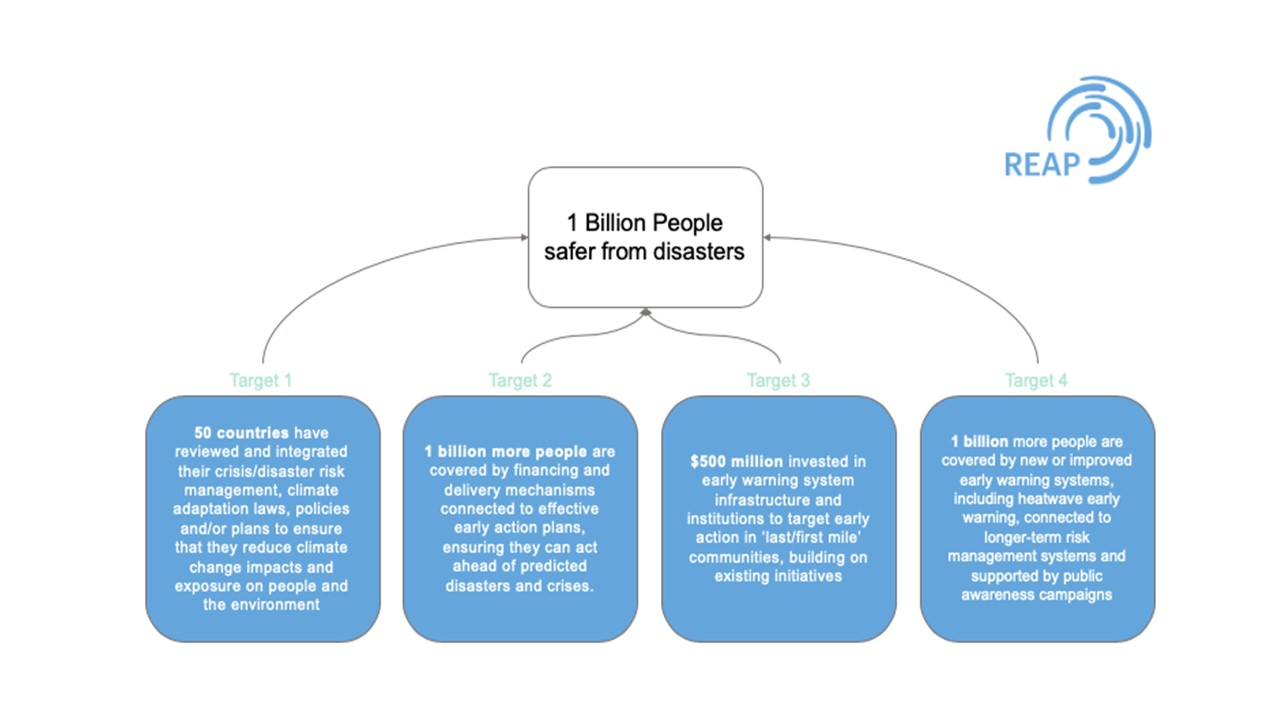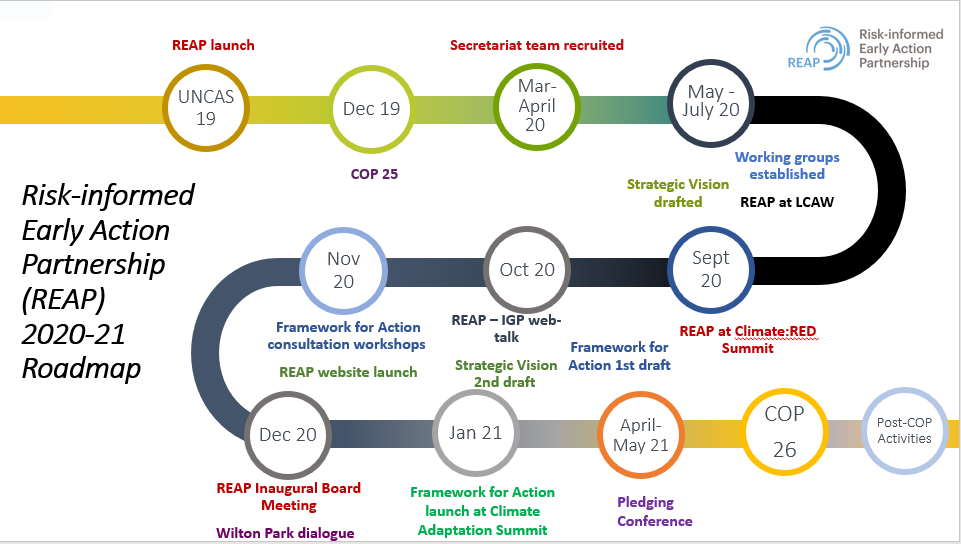Workstream 4: Collaborative Network
Foster collaborations to drive the development of Climate and Disaster Risk Finance and Insurance solutions through well-established networking and management of information
Risk-informed Early Action Partnership
Concerted Early Action is key to combat impacts of climate shocks and disasters
Launched at the UN Climate Action Summit (UNCAS) in September 2019, the Risk-informed Early Action Partnership (REAP) brings together an unprecedented range of stakeholders across the climate, humanitarian and development communities with the aim of making 1 billion people safer from disaster by 2025. The Partnership was launched with four ambitious targets and these will drive a systemic shift towards acting earlier to reduce the impacts of disasters:

The targets highlight the importance of national planning, financing and delivery mechanisms to support early action, along with investment in warning systems that focus on reaching the most vulnerable to turn the ‘last mile’ into the ‘first mile’. These targets are only achievable through partnership and a shared commitment to joined-up, risk-informed early action. While the Partnership and its targets focus on climate-related hazards, ongoing responses to Covid-19 highlight the interconnectedness of risks and how the need for early action and the benefits of the Partnership are wider in scope.
The links with the InsuResilience Global Partnership are self-evident and, in particular, there is strong synergy between the InsuResilience Global Partnership’s ‘Result Areas’ I, II and III and REAP’s targets 1 and 2.
The InsuResilience Global Partnership strives for a comprehensive climate and disaster risk management approach, while REAP focuses on the early action and early warning elements of the risk continuum which strive to reduce the impact of hazards ex ante.
Secretariat staff members from the two partnerships collaborated regularly in 2020 to ensure alignment, complementarity and enhancing each other’s approaches. This was exemplified for the first time by a joint web-talk organized by the partnerships in October 2020 exploring Early Warning Systems and Risk Financing, which highlighted some of the existing opportunities for scaling-up anticipatory approaches.
REAP creates a space in which partners and aligned organizations will use the ambitious targets to mobilize commitments and inspire action. REAP will not create a new funding mechanism or directly implement ground-level projects. REAP will, however, seek to enable coherence, alignment and complementarity of existing initiatives, while learning together about the new initiatives needed to make 1 Billion People Safer. REAP partners agree that the global ability to act ahead of climate extremes and disasters can only be strengthened by working together across sectoral silos and involving those at risk.
REAP and the InsuResilience Global Partnership will therefore continue to collaborate in the coming year with a particular focus on the sectoral communities being established by the InsuResilience Global Partnership under its Working Group on Integrated Approaches, as well as monitoring the progress and impact of both initiatives.
REAP is open to all countries, organizations and initiatives that share its ambition for making 1 Billion People Safer from disasters. While it continues to grow a diverse partnership, REAP partners currently include developed and developing countries, international organizations, civil society and private sector representatives.
In 2021, REAP aims to launch its ‘Framework for Action’ setting out how its ambitious targets can be achieved with the commitment and support of partners, as well as mobilizing further commitments and action in the run-up to UNFCCC COP26. We look forward to continuing the strong links and coordination with the InsuResilience Global Partnership. A roadmap is shown below providing an overview of actions and progress between UNCAS 2019 and COP26:

